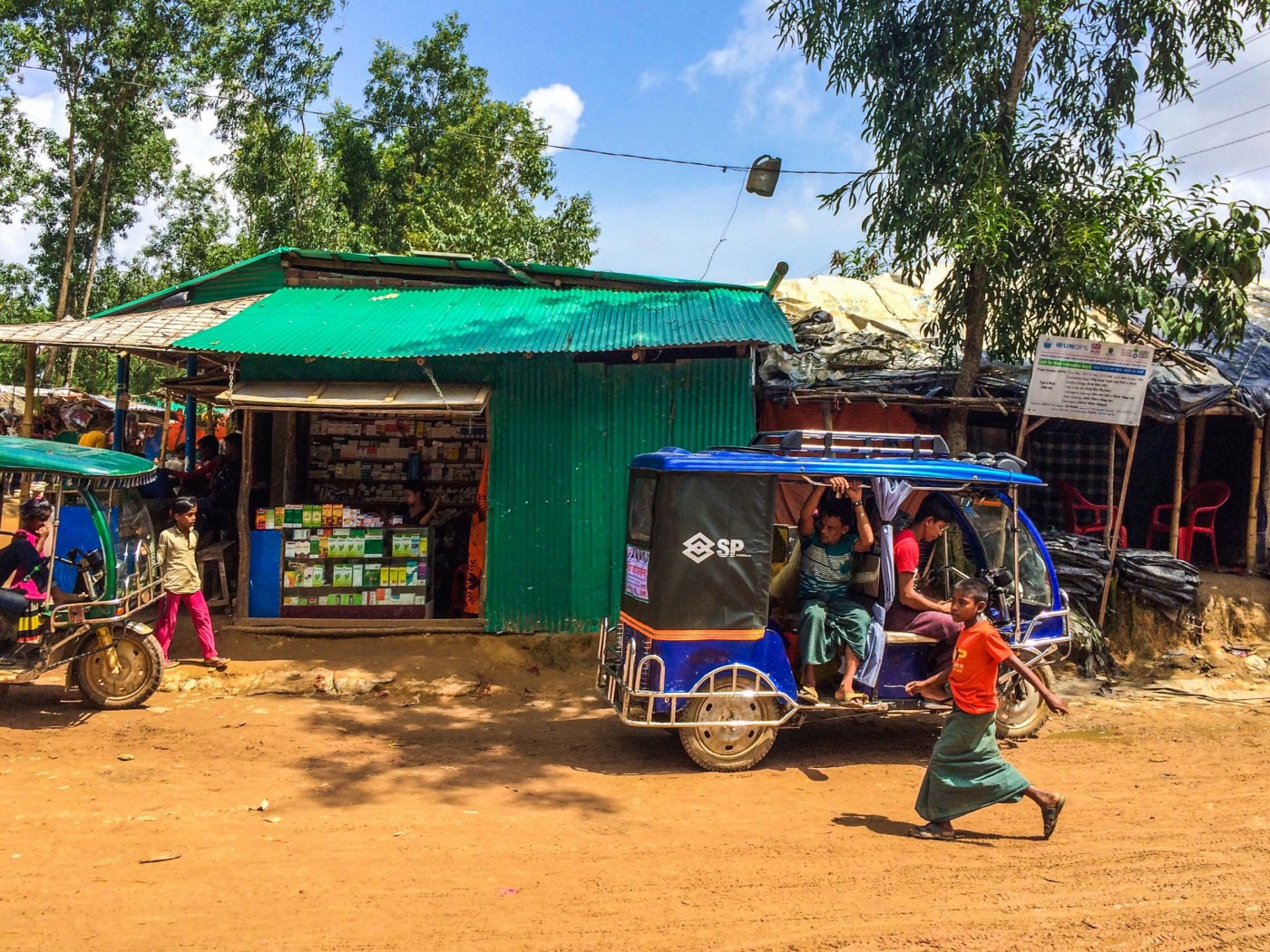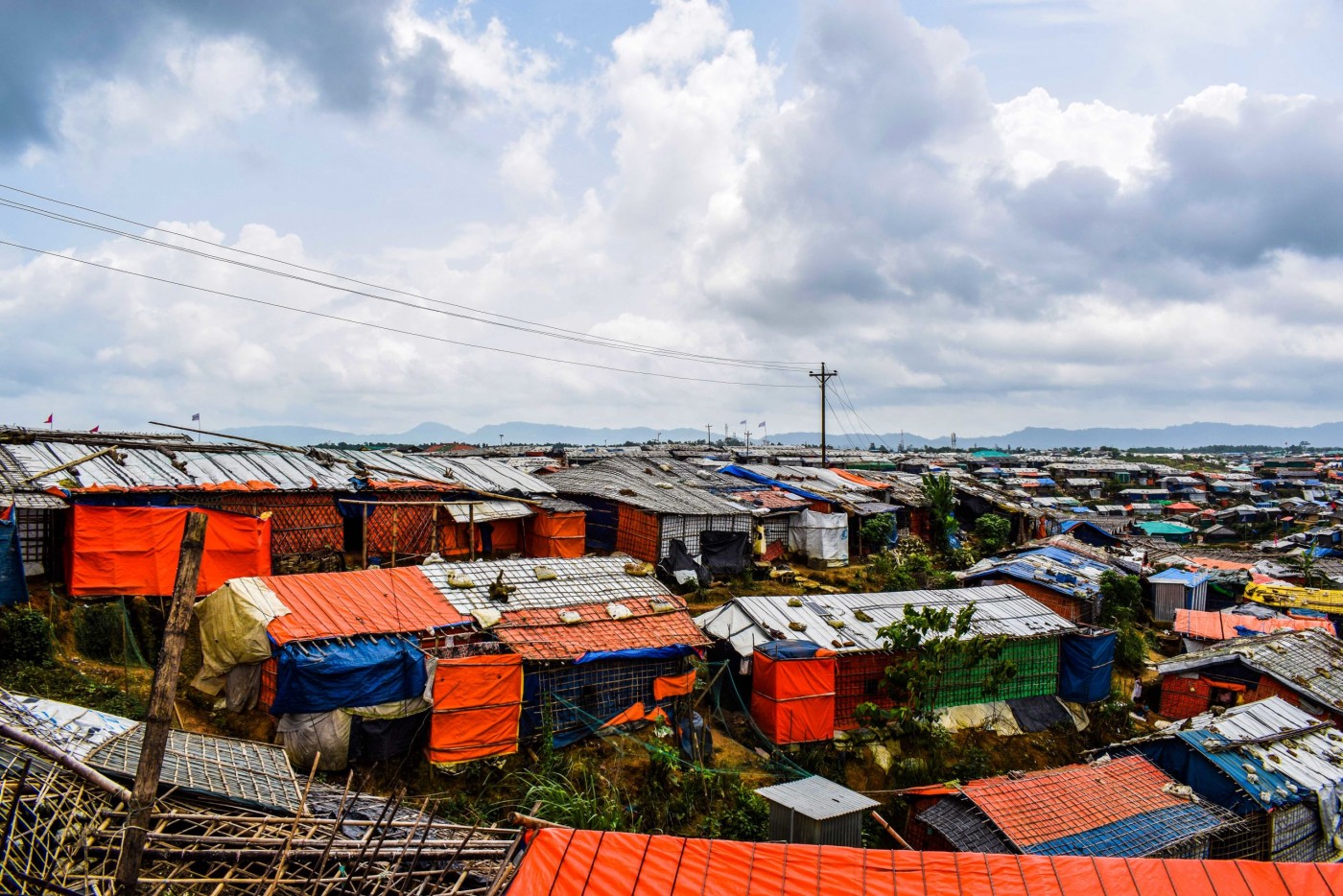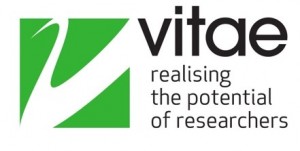In February, we are sharing stories about BU’s research funded from the Global Challenges Research Fund. This funding enables BU academics to undertake cutting-edge research in partnership with organisations in developing countries. These projects help to build collaborations with researchers, policy-makers and practitioners, ensuring that the outcomes of the research have tangible outcomes and impacts for people in those countries. This research was able to continue, despite the travel restrictions due to the pandemic, predominantly by redesigning the projects to reduce BU staff travel and increase local delivery in the beneficiary countries. This change in delivery was beneficial to the research as it encouraged greater partnership working, ensured projects were led by in-country organisations, and will help in the long-term to ensure projects are sustainable after GCRF funding ends.
According to the UNHCR (the UN Refugee Agency), about 68.5 million people worldwide are refugees or forcibly displaced. The crisis affects both development and developing countries. The refugee camps have become features of a significant number of developing nations in Asia, Africa and Latin America. In Bangladesh, Dr Karen Thompson, Dr Mehdi Chowdhury and Dr Tilak Ginige are investigating the project management of the Rohingya refugee crisis. Close to one million Rohingya refugees have sought safety from persecution in Bangladesh. Kutupalang in the Cox’s Bazar, Bangladesh, is the world’s largest refugee camp. Here, there are alarming living conditions, devastating environmental impacts caused by human occupation and staggering economic costs involved in camp management. The research project aims to resolve the issue of suboptimal project outcomes and inefficient project delivery that frequently occurs in displacement crises. The research process involved the analysis of secondary camp activity data, interviewing and surveying the project managers of various NGOs, writing research papers, conference presentation, research seminars presentation, meetings with the Government and NGO personnel.

The project allowed for profiling of the management of the Rohingya refugee crisis and generating an understanding of formal and informal coordination processes of the humanitarian agencies involved. The research identified the need to involve refugees as part of the project development process and the need for formal communication systems to reduce the burden on project managers. Both issues have the impact of poor project outcomes, resulting in wasted financial and human resources. The guidance documents and trained personnel that have been produced will aid future management of the refugee crisis, saving funds and helping refugees. These findings have been communicated through seminars, conferences and research papers. One of the important themes of UN Global Compact on Migration (https://www.iom.int/global-compact-migration) is the importance of localization of management in development activities. The research has also identified that to date, Bangladeshi organizations are only involved in simple coordination tasks and therefore more opportunity must be provided for them to be involved in complex project management activities.

The research and activities received support from the Ministry of Disaster Management and Relief and Ministry of Environment and Forest of the Government of Bangladesh. Both UNHCR (the UN Refugee Agency) and the International Organization for Migration, who are jointly looking after the humanitarian activities through formation of the Inter Sector Coordination Group, have cooperated in the research. Specifically, the project team conducted interviews and surveys of humanitarian project managers in the Cox’s Bazar refugee camp; without their support, this would have been impossible. North South University, Bangladesh supported conducting the interviews and surveys in Cox’s Bazar. This partnership has created a two-way impact by increasing the capacity of both Bournemouth University (in conducting research in an LDC context) and North South University (social network analysis, trained project advisors to assist NGOs).
The workshop for dissemination of the findings and exchanges that was planned to take place in the academic year 2019-20 was postponed due to the COVID-19 pandemic and there are plans to deliver an online event in 2020-21.
Read more about the research project here: https://www.bournemouth.ac.uk/research/research-action/responsible-project-management


 We would really appreciate your feedback on the new budget screen that we are designing for RED.
We would really appreciate your feedback on the new budget screen that we are designing for RED. 












 Expand Your Impact: Collaboration and Networking Workshops for Researchers
Expand Your Impact: Collaboration and Networking Workshops for Researchers Visiting Prof. Sujan Marahatta presenting at BU
Visiting Prof. Sujan Marahatta presenting at BU 3C Event: Research Culture, Community & Can you Guess Who? Thursday 26 March 1-2pm
3C Event: Research Culture, Community & Can you Guess Who? Thursday 26 March 1-2pm UKCGE Recognised Research Supervision Programme: Deadline Approaching
UKCGE Recognised Research Supervision Programme: Deadline Approaching ECR Funding Open Call: Research Culture & Community Grant – Apply now
ECR Funding Open Call: Research Culture & Community Grant – Apply now ECR Funding Open Call: Research Culture & Community Grant – Application Deadline Friday 12 December
ECR Funding Open Call: Research Culture & Community Grant – Application Deadline Friday 12 December MSCA Postdoctoral Fellowships 2025 Call
MSCA Postdoctoral Fellowships 2025 Call ERC Advanced Grant 2025 Webinar
ERC Advanced Grant 2025 Webinar Update on UKRO services
Update on UKRO services European research project exploring use of ‘virtual twins’ to better manage metabolic associated fatty liver disease
European research project exploring use of ‘virtual twins’ to better manage metabolic associated fatty liver disease